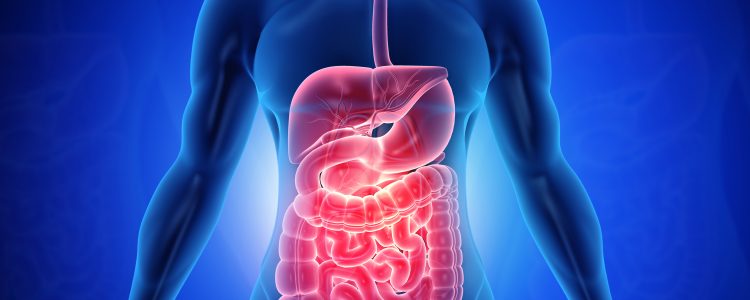A Word on ANTACIDS & H.Pylori

Do you regularly suffer acid reflux or heartburn? Judging by the sales of Rennies, Gaviscon and other over the counter antacids, the answer is probably quite a few of you. A large meal or rich food will often bring on such a bout, so many people keep antacids in the bathroom cabinet.
Chronic heartburn and GERD (gastroesophageal reflux disease) is an unpleasant condition to live with and the accompanying inflammation (from rising stomach acid) can be very damaging to the oesophagus, so sufferers understandably reach for antacids. But here’s the thing, these products were intended to be used short term, no more than a few times a year, yet many people take them habitually, unaware that in doing so they’re altering the pH of their stomach. The change in the pH actually makes the conditions more favourable for the gut bacterium H.Pylori. Yes, you know the one – it’s associated with stomach ulcers.
Helicobacter Pylori
This mostly harmless gut bacterium co-exists with many of us, causing no symptoms, so we’re unaware of its presence. It’s easily passed on via saliva and when sharing utensils. So it may be that after millions of years adapting to the harsh acidic conditions of our stomach, H.Pylori is simply a strategic member of our normal microbiome. However, because its role in gastritis and peptic/duodenal ulcers is well established, (and it also raises risk of stomach cancer), when symptoms of chronic acid reflux occur it’s sensible to investigate, rather than just keep popping the Rennies.
If H.Pylori infection is diagnosed, a GP will prescribe an antacid alongside two antibiotics. However, such treatment need not be generalized to all H. pylori positive subjects, when there are no symptoms.
My concern about the casual long-term reliance on over the counter antacids is not just because H. Pylori will thrive when the pH of the stomach is frequently raised. Clearly when their use becomes ‘regular’, the antacid is not resolving the root cause of the problem. Reflux often reflects stagnation in the gut and inefficient digestion – possibly even from insufficient stomach acid – I know, it’s counter-intuitive! But food hangs around for longer when it is NOT getting digested, so it fails to move on down to the small intestine in a timely fashion, and this can cause reflux.
Side Effects
Regular users of antacids should also be aware of the nutrient deficiencies that can result. Studies have shown an association between low stomach acid, H. pylori infection and iron deficiency anaemia, while the absorption of some vitamins such as vitamin B12, vitamin A, vitamin C, folic acid and Vitamin E are also affected.
So – prevention is always better than cure – when you next drop by the chemist for your antacid, consider instead Slippery Elm, and/or Aloe Vera juice instead, which will soothe and reduce inflammation, without altering the pH of the stomach. Once inflammation has subsided, encourage healthy levels of stomach acid by supplementing meals with digestive enzymes and starting meals with bitter dark green salads, watercress etc, with cider vinegar dressings, which will stimulate healthy production of stomach acid, and get digestion going well. By optimising digestion you’re more likely to keep H. Pylori in check.
Dietary advice
Foods containing plant flavenols like apples, cranberries, onions, garlic, celery, and tea inhibit growth of H.Pylori. Also foods rich in B vitamins and Calcium like dark leafy greens, beams, almonds, whole grains and sea vegetables. And of course, eat smaller meals, and more modest portions of protein especially in the evening, because protein is harder to digest and hangs around in the stomach for longer, making reflux in a relaxed prone position more likely. So eat earlier – avoid eating late at night if you can. Don’t drink litres of water with or straight after a meal – you’ll simply dilute your stomach acid. Stomach acid not only digests food – it helps to keep the stomach free from parasites and bugs!
Digestive Enzymes
This is my go-to when I know a meal is going to be rich and/or big! ‘Similase‘ digestive enzymes simply provide a bit of support to the digestive process, getting food to move on faster in a timely fashion, making reflux less likely – crucially, without altering the pH of the stomach.
https://naturaldispensary.co.uk/products/Similase_90_s-2467-0.html
References
[1] A Talebi & B Abadi (2014) Helicobacter pylori: A Beneficial Gastric Pathogen? Front Med (Lausanne).1: 26
[2] Mei Zhang (2015) High antibiotic resistance rate: A difficult issue for Helicobacter pylori eradication treatment. World J Gastroenterology 21(48):13432-7.
[3] Chuah SK et al., (2011) A new look at anti-Helicobacter pylori therapy. World Journal of Gastroenterology. 17(35):3971-5.
[4] G Vitale et al., (2011) Nutritional aspects of Helicobacter pylori infection. Minerva Gastroenterol Dietol 57(4):369-77
